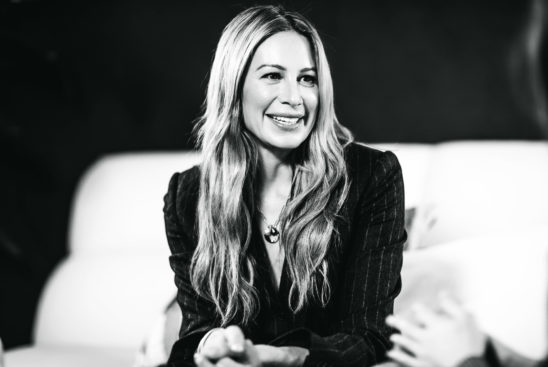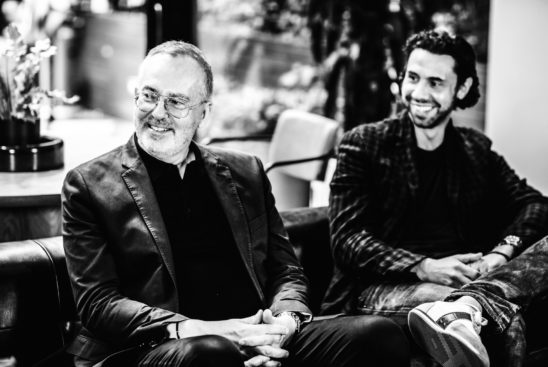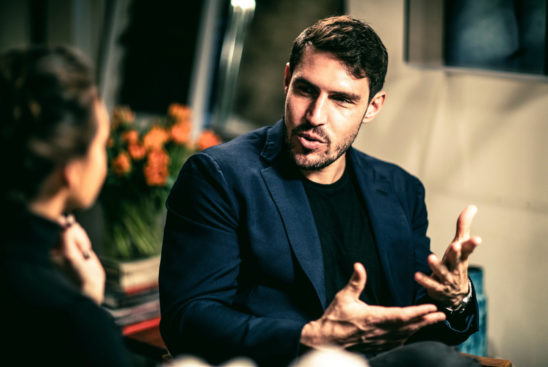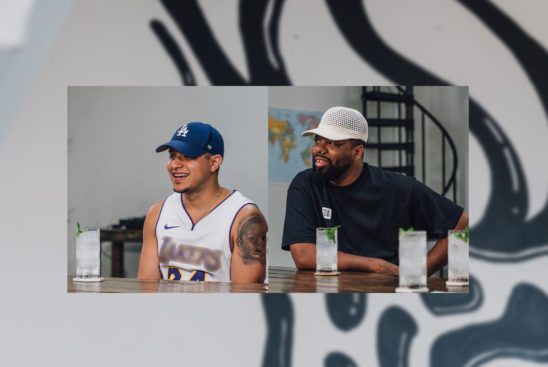We brought Gia Coppola’s Gia Frizzante Chardonnay for a little happy hour before your book signing.
I appreciate that, cheers! … Writing is so solitary for the majority of the time so when you can come out on a tour and finally connect with the people who are reading your stories it’s a lot of fun.
What is something that you always have with you when writing?
Whiskey, lots of whiskey! [Laughs] You always think you’re going to create something great when you’re drinking but it’s never good when you read it the next morning. I have an office outside of my backyard, sort of a converted pool house loft-like space and I write there but I really write best when I’m on the road. I always go away at least twice during the cycle of the book. I come to Chicago a lot, my favorite place to stay is at the Peninsula Hotel. Some writers like the rustic cabins, I go Peninsula. I find cities and crowded airports are good too because it makes you feel more anonymous when there is a lot of energy around you.
You’ve said that you have a love-hate relationship with writing, does that still hold true?
Yes, well I think all writers do. It’s really hard work and it never gets any easier. I would have thought that after seven books it would not necessarily be easy but at least be less difficult and it’s not. Every time the writing process is just as hard. I can struggle sometimes over writing something as simple as a thank you note. I’ll write three drafts just to thank someone for a gift in four sentences. So I still don’t know how I manage to write a book!
What new pressures arise after writing a New York Times best selling novel?
It’s just that you don’t want to let your readers down because they wait and are so enthusiastic so you never want them to say, “I liked your old stuff.” You hear that about musicians and writers, “Oh, I liked your old stuff.” You never want to hear that when it comes to your books.
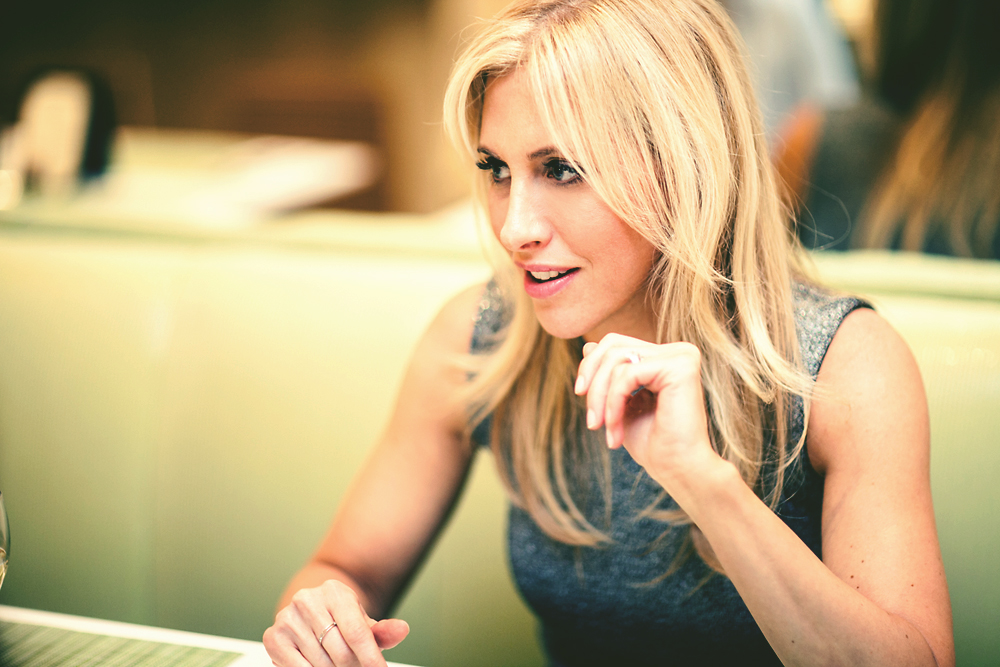

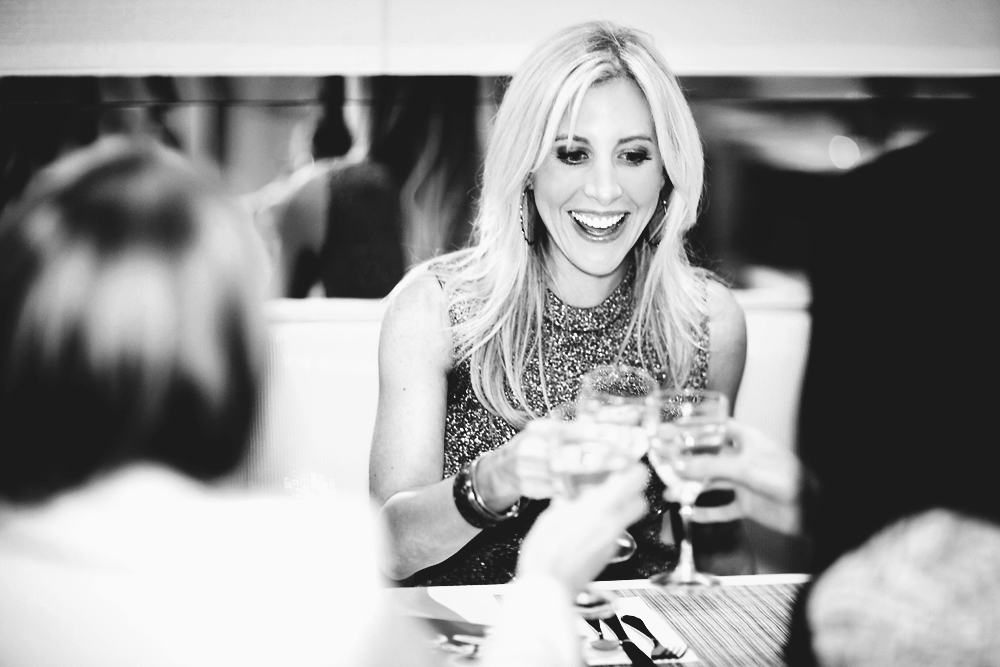
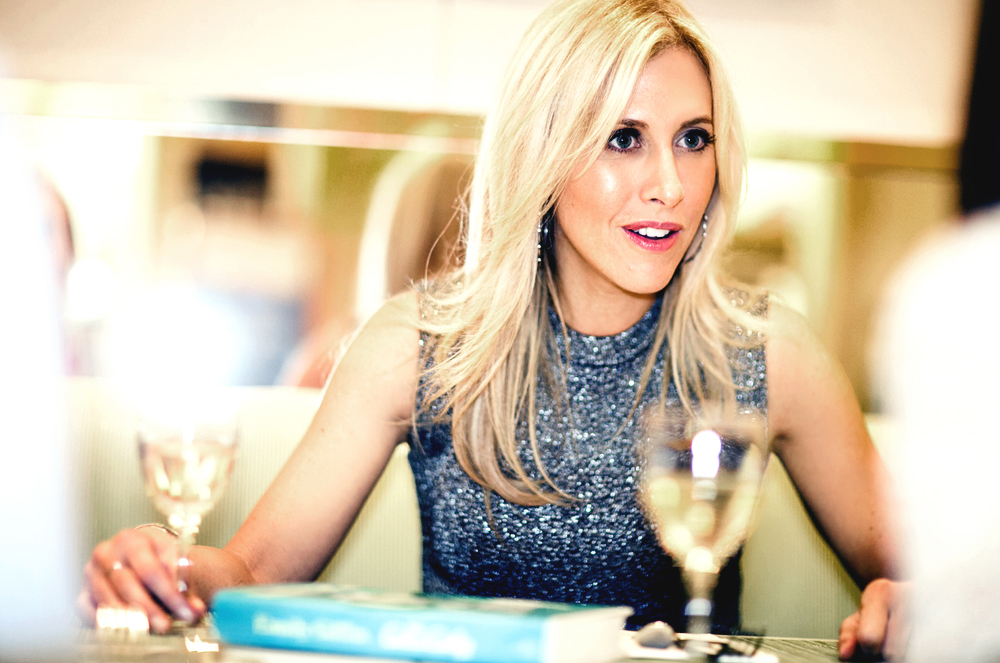
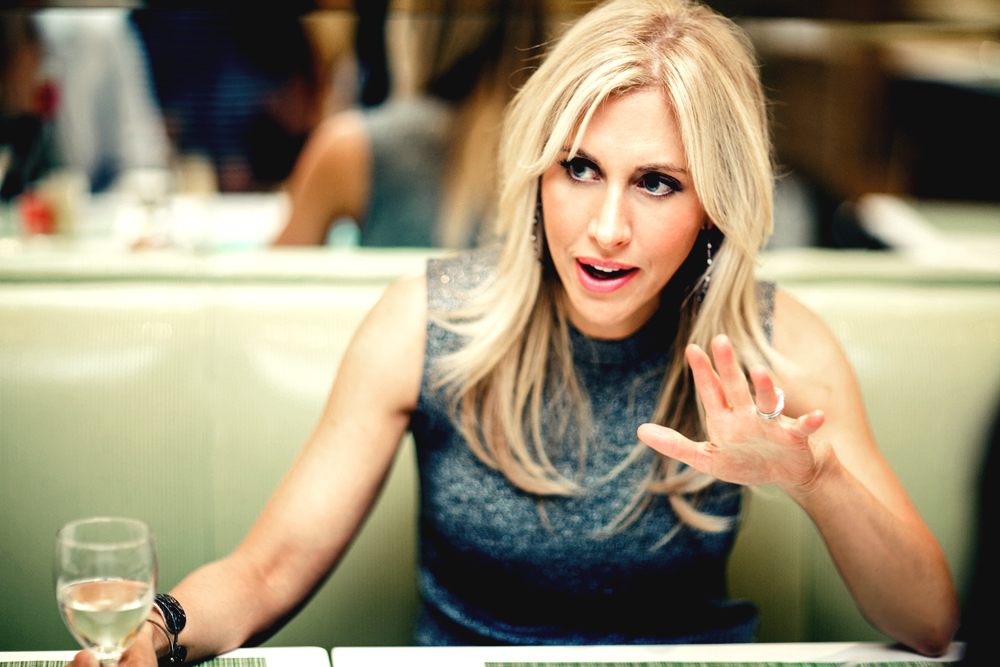
Do negative comments ever get to you?
Oh, yeah! Sure. Everyone has feelings, especially when you create work and put your heart and soul into something and put your story out there. Obviously you know that not everyone is going to connect with it and that’s all part of it. In a way you want the varied opinions. With my first book “Something Borrowed” there were people who felt cheating was always wrong and they would say they hated the book because of it. However, you kind of want that when you create, you don’t want people to be lukewarm but at the same time people can hurt your feelings. I really try to tune that out because it’s just negative energy and [I’m not talking about] the constructive, mixed reviews but the mean things. If you let that get into your head it can affect you on a creative level.
Are reviews easier to digest?
I truly do not read reviews. I don’t. Even the really positive ones, I don’t read those either because it’s almost like hearing your own voice, I cringe. That’s how I feel when I read a review, positive or negative. I save them and keep them in my pretty binders but I haven’t read them.
Your first manuscript was rejected by eight publishers. What advice can you offer aspiring authors based off of that experience?
I always say this to writers; to get published you have to have two individuals really connect with your story, your agent and your editor. I always had this sense that when you submitted a manuscript there were 100 people at [a publisher like] Random House and they all voted and read it and debated on it but really it’s only that one editor that you sent it to. That’s a comforting thing to remember because if you get those rejection letters it’s only four or five people who didn’t like your story and that can happen at any level [of success]. And if you think about it, that editor could have just had a bad breakup so they don’t want to hear a story about a breakup or they could have just bought a book about infidelity so they can’t buy another book about that same subject. It’s all of these little factors that come into it. You have to be true to your story and your characters and keep trying.
When “Something Borrowed” was turned into a film what surprised you the most about that process?
I learned how utterly collaborative the filmmaking process is. Beyond the screenwriter things get rewritten many times and if the cast has enough clout they can weigh in too. One scene goes through so many different changes and is in so many different hands that it truly becomes a group effort. A scene never turns out to be exactly the scene as any one person wanted it. That to me is really fun because writing a novel is not like that, you have sole control besides your editor weighing in. I am writing the screenplay for [the sequal to “Something Borrrowed], “Something Blue”, so they are giving me the first crack at it which is so thrilling and exciting but I know it will get rewritten a lot.
Did your first book deal or the news that it would be turned into a movie bring more joy?
The book deal was more exciting because that was more of a long-term dream. I’ve wanted to be a writer since I was in the first grade when I learned the word “author” and had gone through so many stages of being rejected. My mother was a librarian so to call her with that news [was very special]. Her first question was, “Is it going to be a paperback or hardcover?” At the time I had two offers, one for paperback and one for hardcover and with the paperback offer I would be making more money but she was like, “You gotta go hardcover.” The movie thing is more surreal because the characters you created are coming to life.
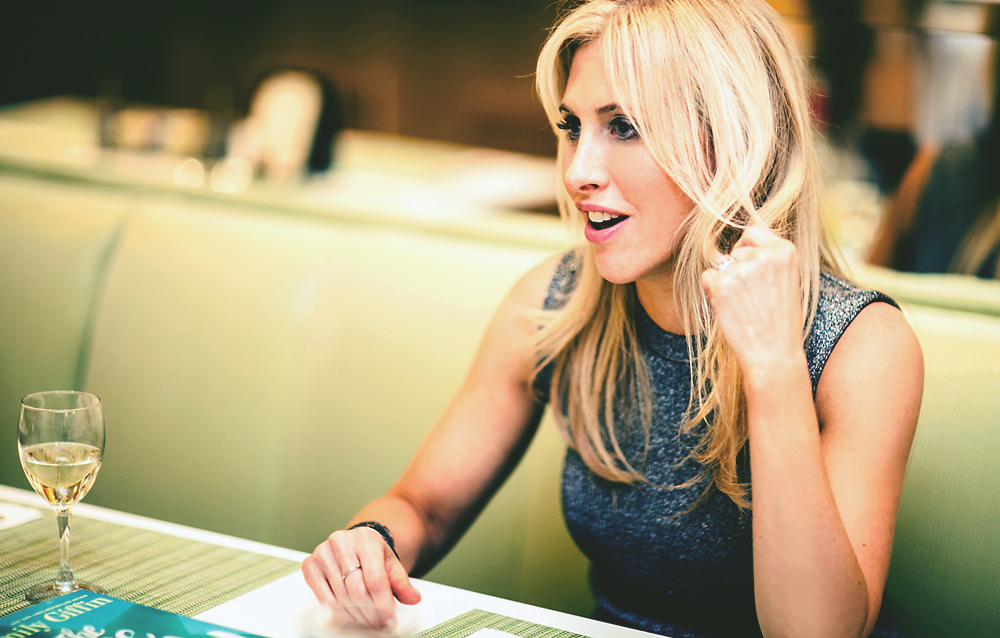
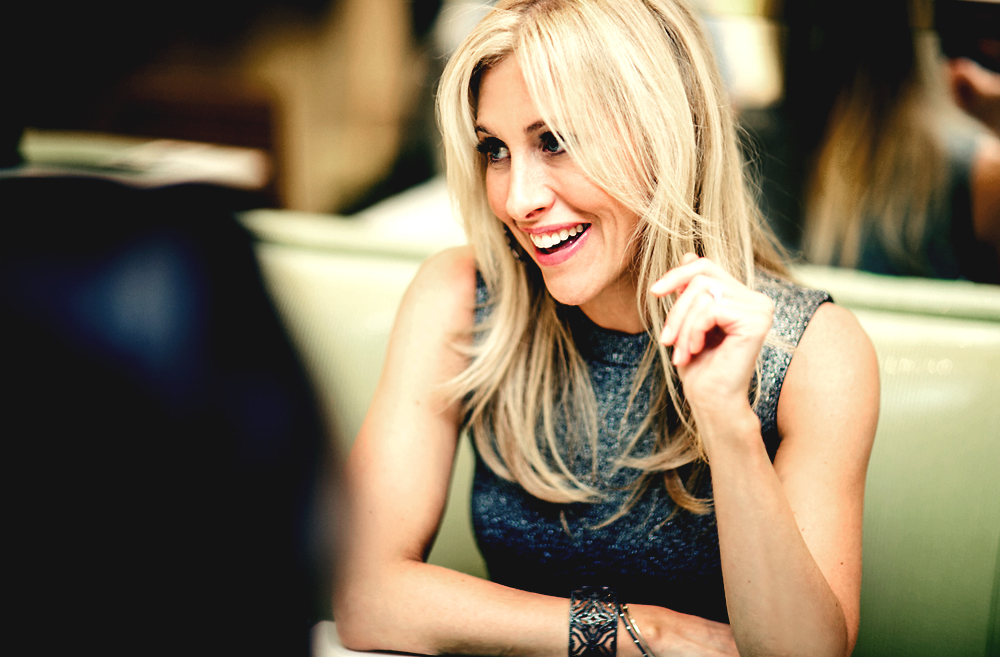
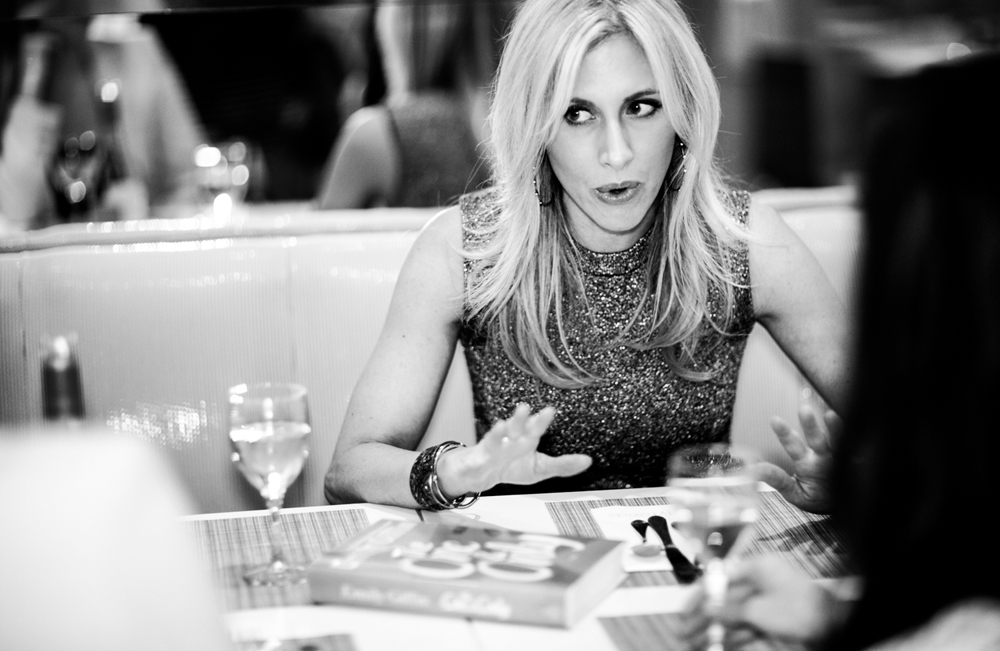
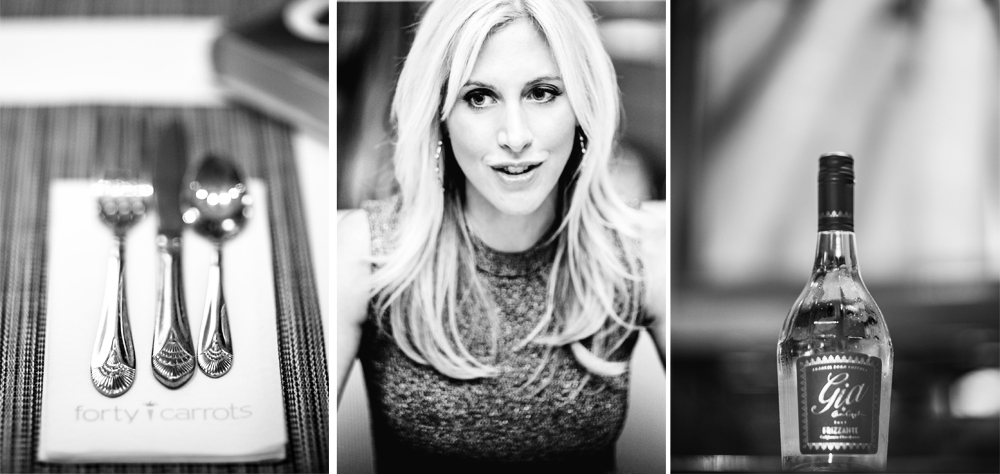
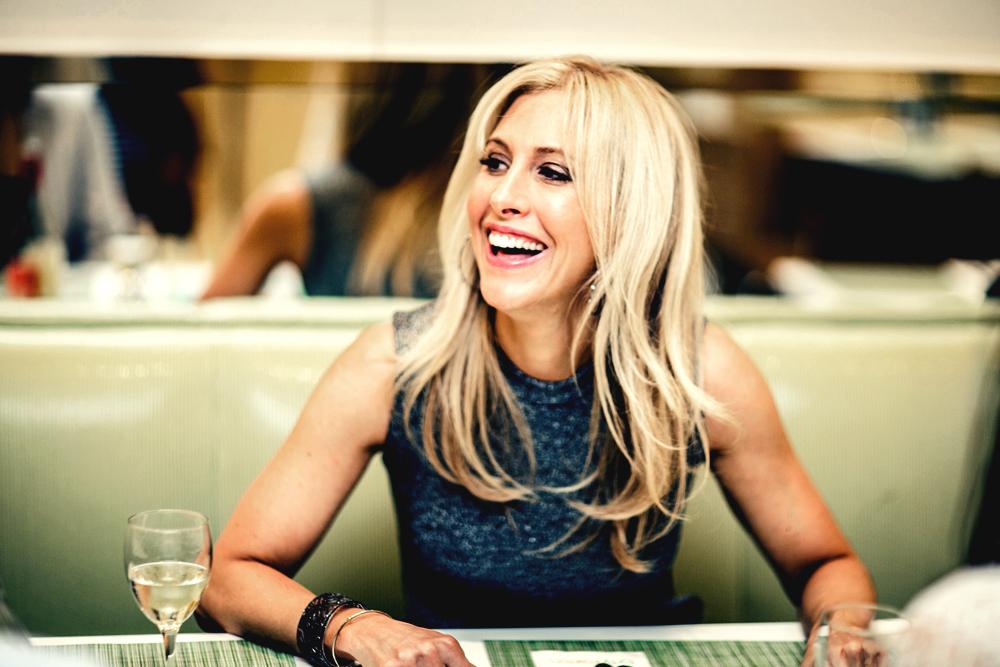
Especially when you get A-list movie stars signed on.
To have Kate Hudson playing Darcy is surreal. I mean, I made up this character in London and now Kate Hudson is playing her? But the thing about the movie too is that it happened so slowly and it changed hands so many times that I was sort of like, “I’ll believe it when I see it.”
How close was Kate Hudson to the vision you had of your character Darcy?
My readers on Facebook would say, “Well, Darcy is a brunette,” and I’m like, “Well, she’s a blonde now.” You have to work with the talent that is available, that’s the other thing you don’t originally think about. You don’t get the ideal cast; someone is already booked for another film, Amy Adams is pregnant, whatever the case may be. Not that we didn’t have our first choice cast but there is so much that goes into it.
Why the move from New York to London when you decided to quit law and become a writer?
Up until that point in my life I had always made decisions that were sort of safe, even a lot of my relationships were safe. Going to law school was a decision driven just by wanting to achieve something and knowing that I could take the LSAT and go to law school. Then I found myself at 29 without kids and really wanting to do something completely different so I moved to London. If I would have been truly brave I would have gone to a place where I didn’t speak the language—I would have gone to Italy and written “Eat, Pray, Love”, I love that book—but England felt like as much of a risk as I could handle at the time. I was still living abroad and out of my comfort zone but it wasn’t as scary. And my mother is a huge anglophile beyond just liking the the royal family.
Your new novel “The One and Only” explores love, loyalty and imperfect relationships. Can you share something that’s imperfect about a relationship in your life?
Oh gosh… Marriage is like any relationship, it’s just the most important one that you have. Like friendship or anything else, you go through ups-and-downs and there are cycles to it. Sometimes it’s really hard and feels miserable and then sometimes it’s great, you just have to compromise and hang in there. I think that when it comes to your very closet friendships sometimes the easiest ones aren’t the deepest. You have your friends that you go out with or you shop with and they’re great too but the really deep friendships can be complicated and require work and cycles of understanding and forgiveness and your feelings can get hurt if the person is not there for you.
If you could have a drink with anyone, who would it be?
That’s so much pressure to decide on just one person! I feel like I need to say someone like Abraham Lincoln or Jesus Christ. I’d go with Jesus, but let’s forget the deep Shakespearean answers and go in the opposite direction. I have a huge girl crush on Jennifer Aniston. It’s such a cliché but if I ever wrote a memoir the title would be “I Can’t Be Truly Happy until Jennifer Aniston Is Happy”. Isn’t that a great title? Don’t steal it!
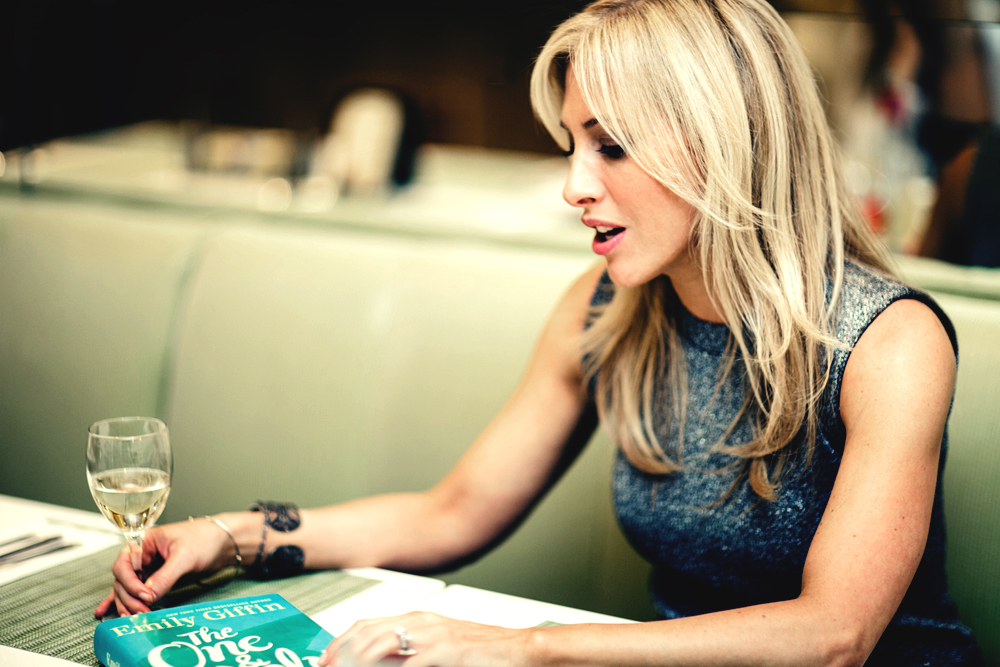
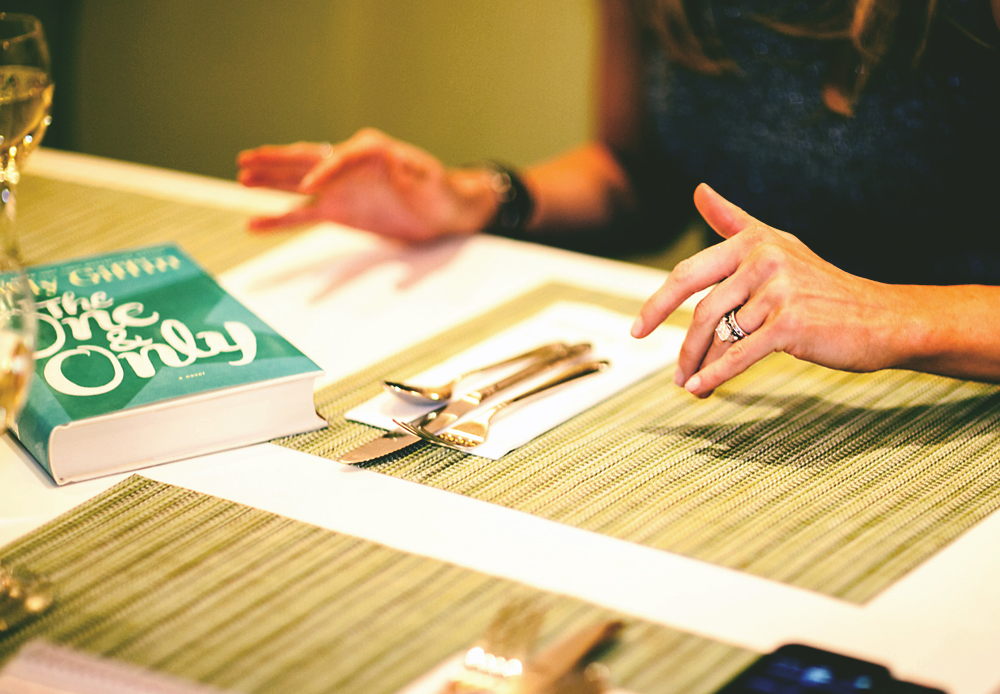
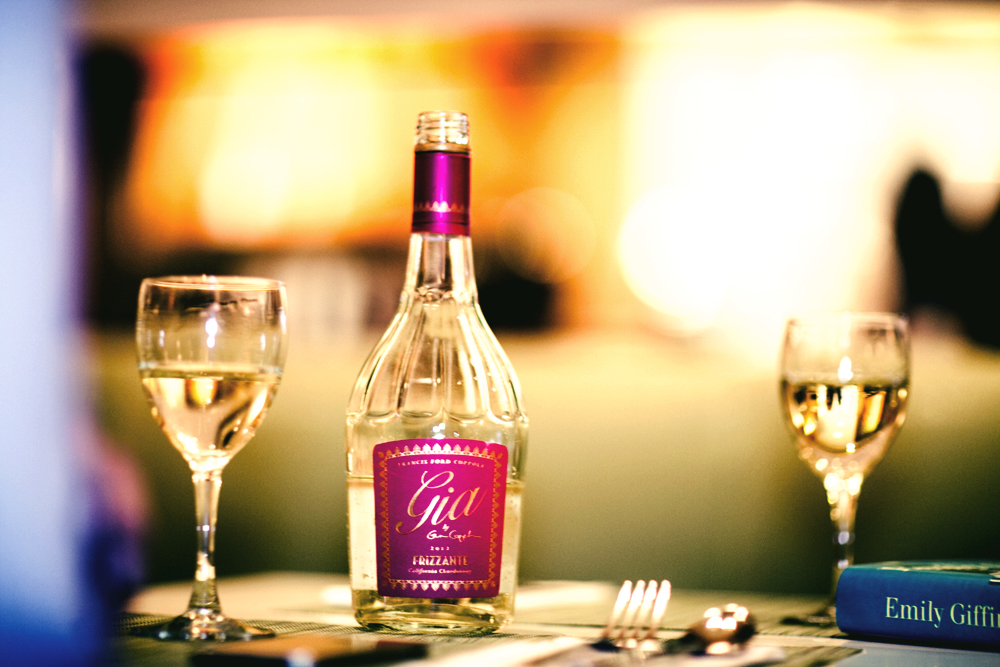
PHOTOGRAPHY / KIRSTEN MICCOLI at 40 Carrots Bloomingdale’s
Did you enjoy this feature? Subscribe to our newsletter and never miss a drink, we promise we’ll never spam you!

